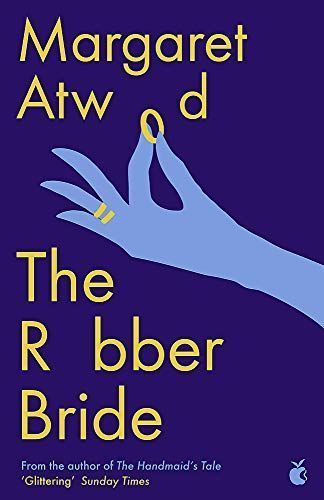
The Robber Bride
By the author of The Handmaid's Tale and Alias Grace Zenia is beautiful, smart and greedy, by turns manipulative and vulnerable, needy and ruthless; a man's dream and a woman''s nightmare. She is also dead. Just to make sure Tony, Roz andd Charis are there for the funeral. But five years on, as the three women share an indulgent, sisterly lunch, the unthinkable happens; 'with waves of ill will flowing out of her like cosmic radiation', Zenia is back...
Reviews
Ryan Mateyk@the_rybrary
Pavonini@papaver
Melissa Schwartz@melschwa18
Jade Flynn@jadeflynn
Devin Mainville@bookishandbored
Melanie Chen@hakim
Sarah Erle@serle
Gertrud Sofie@gertybirdy
Ida Karlgren@zidiyanlynx
Lola@readmyselfintopeace
Rochelle Butcher@rochelles_reading_journal
Martha F.@marthaq
Nicholas Barnard@coldfruits
Traci Wilbanks@traci
Rebecca Harwood@beck
Monique Baham@moniqueb
Emily@emilydreadful
Stephanie Highfield @shighfi
Lauren Wightman@luckylauren
Eloise@elcrivain
Jenna T.@jennabenna
Kathy Rodger @bookatnz
Sabine Delorme@7o9
Jessie@jraelew